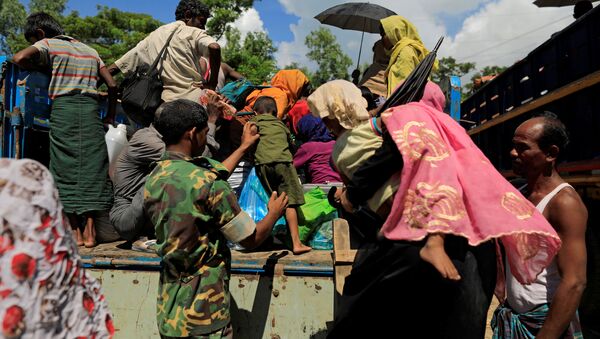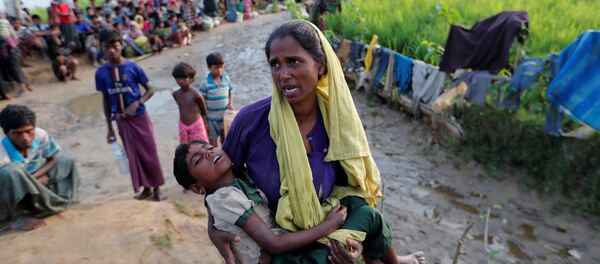Amongst the 600,000 Rohingya Muslims who have fled the violence in Myanmar’s Rakhine state, 40,000 are unaccompanied child refugees, according to UN Commissioner for Humanitarian Aid and Crisis Management Christos Stylianides.
"I was shocked during the visit in the camps by the magnitude of what I saw. The magnitude of the influxes in a very short time, it's completely unique," Stylianides said, Press TV reported.
UN officials and human rights activists have raised concerns regarding these child refugees being at risk of falling victims to human trafficking.
— Christos Stylianides (@StylianidesEU) November 1, 2017
The commissioner who was on a two-day visit to the refugee camps told reporters in Dhaka that the situation in Cox's Bazar requires a thorough and a coordinated humanitarian response.
"The current refugee crisis here in Cox´s Bazar is the biggest in decades and it requires a comprehensive and a coordinated humanitarian response," Stylianides said.
He further said that the number of people, their needs and their trauma is beyond imagination. There is also a huge number of children with acute malnutrition. "The governments of Bangladesh and Myanmar should continue to engage in dialogue," the commissioner said.
— Olivia Headon (@livheadon) October 30, 2017
On October 23, the European Union co-hosted with Kuwait the Pledging Conference for the Rohingya Refugee Crisis, in Geneva in partnership with the United Nations Office for the Coordination of Humanitarian Affairs (OCHA), the International Organization for Migration (IOM) and the UN Refugee Agency (UNHCR).
— Olivia Headon (@livheadon) November 2, 2017
International donors announced pledges of more than $344 million to urgently increase the delivery of critical humanitarian assistance to both the Rohingya and host communities in Bangladesh.
“With a pledge of €30 million from the EU budget on 23 October, the total Commission support to the Rohingya and their host communities in Bangladesh and Myanmar comes to €51 million for 2017,” European Commission website reported.
The international community has called on Myanmar’s authorities to stop the brutal military campaign and to allow humanitarian access to those who have been affected by the violence.
Myanmar is home to over 100 ethnic groups, but the Rohingya have been effectively denied citizenship since 1982, when the country’s Nationality Law was introduced. Historically, the Buddhist majority in the state of Rakhine, bordering Bangladesh, has seen the Rohingya as illegal immigrants and as outsiders.



